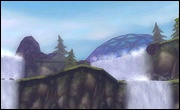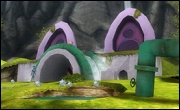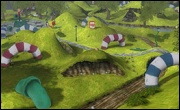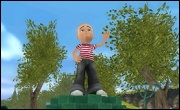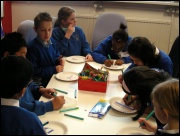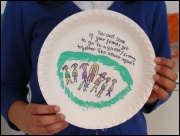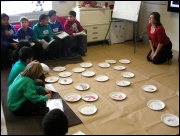|
See davidgauntlett.com for new stuff. |
 |
![]()
| FUNDED RESEARCH PROJECT (2007-2009): |
| Virtual worlds and the public service broadcaster |
|
University of Westminster researchers David Gauntlett, Jeanette Steemers and Lizzie Jackson, were awarded funding by the AHRC and the BBC to study Adventure Rock, a virtual world for children, developed by the Children's department of the BBC and launched in 2008. A second grant was awarded in 2008 to study potential public service uses of virtual worlds, for adults as well as for children, in 2008-09.
We produced two reports about the first phase of the study, which can be downloaded here:
The second phase concerned potential public service uses of virtual worlds, for adults as well as for children. Slides from a presentation at a BBC/AHRC event in April 2009, in which we presented findings from both phases, can be seen here:
This project aims to establish how children inhabit and engage with immersive digital environments, based on a case study of Adventure Rock, in collaboration with BBC Children's department. Launched in early 2008, Adventure Rock is a 3D virtual environment offering exploration and creative opportunities for children to experiment with music, drawing and animation, alongside a dedicated website and message board community. Virtual worlds for children are appearing all the time, with sites such as Club Penguin, Moshi Monsters and the forthcoming Lego Universe offering young children the opportunity to interact with others in a virtual environment. The BBC, perhaps because of concerns about its public service remit, has chosen to make Adventure Rock a closed world where users' avatars cannot meet or communicate. This may give parents a sense of security, but wilfully ducks the potential of networked Web 2.0 environments. The study explores why the BBC have chosen to go down this route, and what children themselves think of it. (We should note that Adventure Rock sits alongside other aspects of the CBBC website, such as MyCBBC, an excellent Web 2.0 application for children which enables them to create presentations of self, and their interests, to share with their friends - see links below). Research workshops took place in December 2007 and January 2008, with 75 participants aged 7-11 years, in five mixed socio-economic and ethnic groups located in Scotland, Wales, N Ireland, and England. The children were encouraged to talk about and illustrate imaginary spaces and places, and to suggest what they would like to see in a virtual world. The children then had six weeks to explore Adventure Rock in their own time, and then met again to take part in a second workshop where they mapped out places and things in the world, and made creative suggestions about what they would add or remove from this virtual place. (Children were given a £25 voucher in recognition of the time they had given to this research). Parents were also asked to complete a questionnaire regarding their feelings about their children participating in this virtual world. In addition, a researcher spent time as a participant observer working alongside the producers and hosts of BBC Children's (taking a minor role). A detailed research diary was used to note congruencies and disparities between producers' expectations and children's own responses. Initial findings were presented at the conference Children in Virtual Worlds on 22 May 2008.
|
|
![]()



